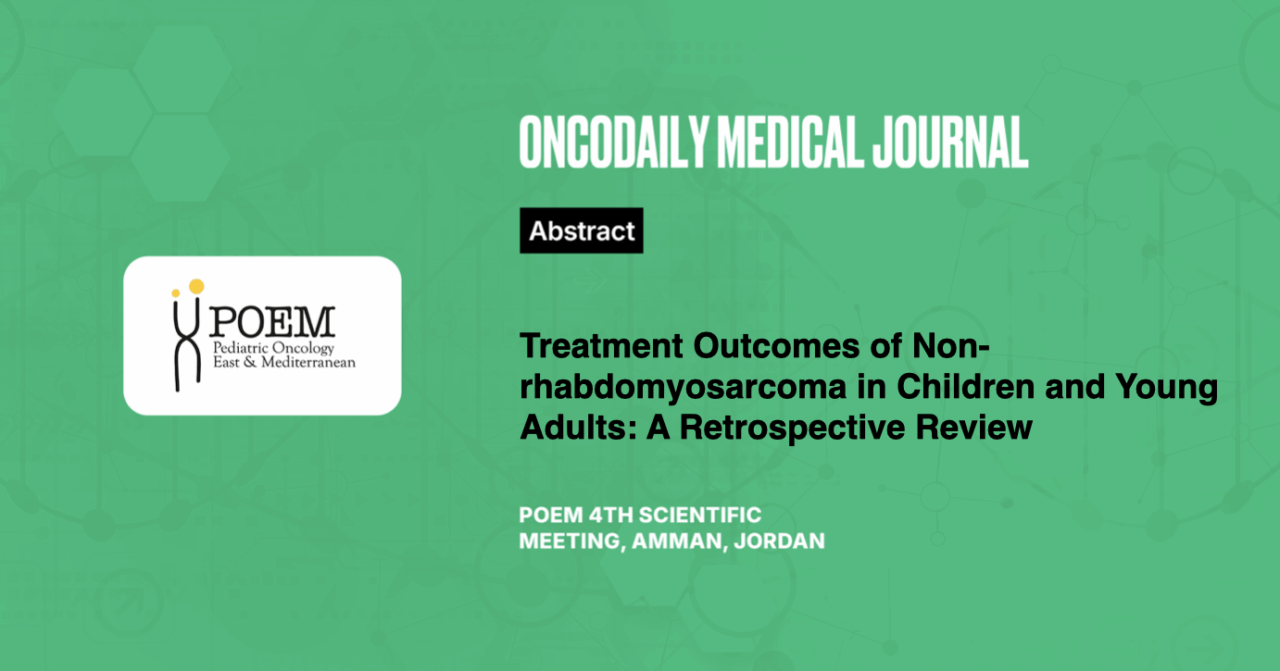Treatment Outcomes of Non-rhabdomyosarcoma in Children and Young Adults: A Retrospective Review
Abstract
Introduction: Non-rhabdomyosarcoma soft tissue sarcomas (NRSTS) represent a rare and diverse group of over 50 histological subtypes with poor outcomes, particularly in advanced stages or delayed diagnosis. Despite advancements in pediatric oncology, there is a significant gap in localized data regarding survival outcomes and associated risk factors for NRSTS. This study aims to evaluate survival outcomes and identify key risk factors among patients diagnosed with NRSTS.
Methodology: A retrospective review was conducted on 44 patients diagnosed with NRSTS at King Fahad Specialist Hospital-Dammam (KFSHD) from 2008 to 2020. Clinical data were extracted from cancer registries and patient records, including tumor characteristics, treatment modalities, and survival outcomes. Kaplan-Meier analysis was employed to assess survival rates.
Results: The overall survival rate for the entire group at five years was about 70%. Patients who had surgery-maintained survival rates above 75% over five years, while individuals deemed surgically unresectable, exhibited a survival rate of around 25%. Similarly, patients who received radiotherapy had nearly 90% survival at five years, compared to those who did not.
Conclusion: Our findings suggest that surgery and radiotherapy are associated with improved survival outcomes, with substantial benefits observed in patients undergoing either treatment, highlighting the importance of local control in NRST.





